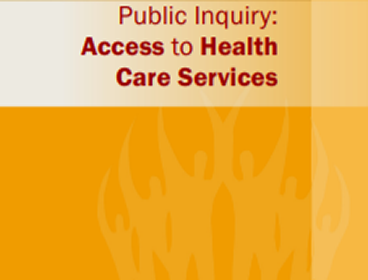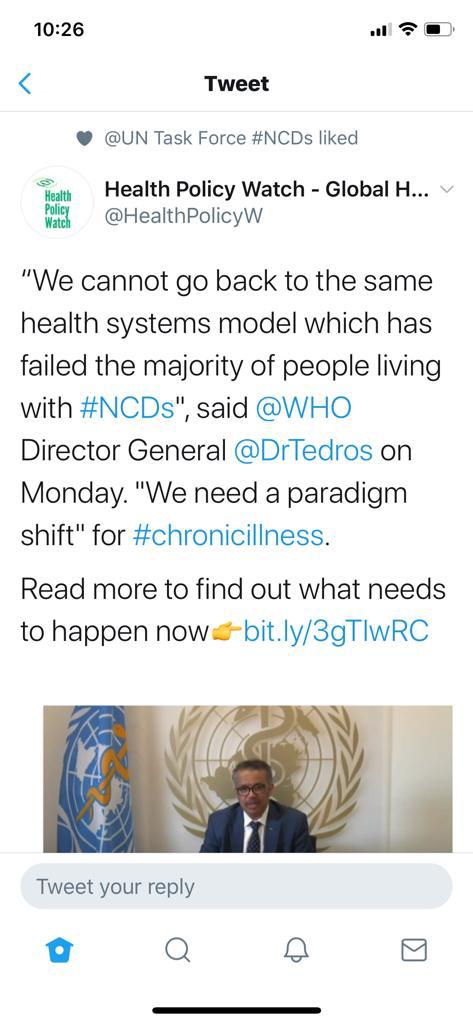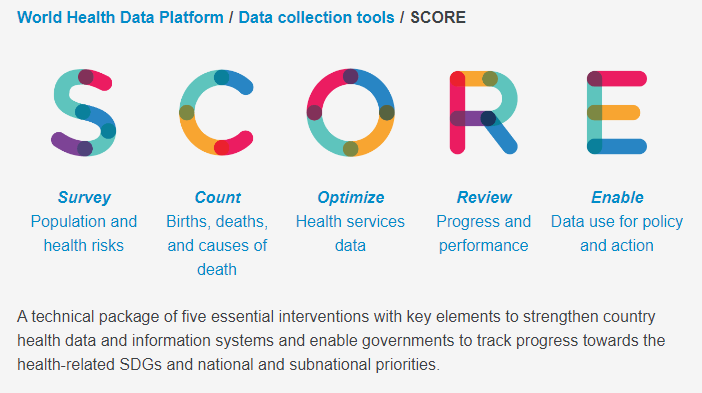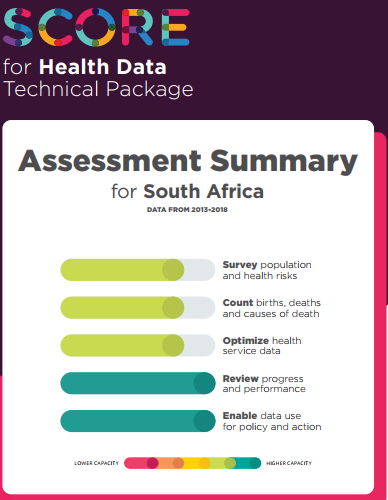Deputy President David Mabuza says nothing short of a systemic overhaul is required to pull the country’s ailing health system out of the status quo.
“We all agree that our health system is in crisis and needs urgent attention,” Mabuza said on Friday at the inaugural Presidential Health Summit.
Delegates ranging from government officials, academics, labour to social activists are gathering in Ekurhuleni, Gauteng, over the next two days to thrash out pressing matters beleaguering the country’s strained health system.
Where does it hurt?
Before any steps can be taken, Deputy President Mabuza said, the country must collectively get to the root cause of the crisis.
“According to the World Health Organisation (WHO), one of the six building blocks of a healthy and resilient healthcare system is the health workforce or human resources for health.
“Over the past few months, there has been a serious outcry from all corners of our country about the shortages of the workforce in the public sector. Whereas the President has agreed to inject a certain number of the health workforce as part of his stimulus package, this is just but a temporary measure for immediate relief,” he said.
As part of the stimulus package, President Ramaphosa announced in September that Minister of Health and the National Health Council would immediately fill 2 200 critical medical posts, including nurses and interns. Funding would also be made available immediately to buy beds and linen.
On Friday, Mabuza said the summit had to come up with lasting solutions.
“The gross inequalities that have developed in the provision of human resources between the public and the private health sectors need to be faced head-on and resolved speedily,” he said.
The Deputy President said the country needed to urgently produce a national human resource operational plan that each level of health care can use in planning service provision.
The second major cause of problems in the provision of good quality healthcare, Mabuza said, is poor procurement or supply chain management systems that make it impossible to have adequate pharmaceuticals and other vital health commodities.
Although the country has essential medical equipment and medicine lists, which were accompanied by the delivery of chronic medicines distribution programme, challenges emanating from inadequate maintenance of equipment and stock-outs of medicines are still experienced.
“To ensure quality, safe and relevant technologies, we need to involve the end-users, primarily the health workers, in the procurement of equipment to ensure they can be used effectively and efficiently,” Mabuza said.
The Deputy President said the State needs to work with civil society groups to monitor the availability of medicines and other commodities in the healthcare system.
“The public needs to keep us on our toes to ensure that the population gets what is due to them.”
Health services provision is another area that requires urgent attention, Mabuza said, as this would ensure that every South African has access to care that is affordable.
“It must also be comprehensive and include preventive, curative, palliative, rehabilitative and health promotion services. At the moment, the primary health care component of our healthcare system is very weak and is found wanting.
“Our healthcare system is by and large curative, hospicentric and unable to provide comprehensive healthcare.”
Mabuza conceded that public facilities were congested, inappropriately staffed and plagued by long queues of patients, among them too many repeat visits.
NHI
With regards to the National Health Insurance (NHI) scheme, which is set to be phased in from 2019, the Deputy President said health facilities had to meet the set standards in order to be accredited.
Government is in the process of establishing learning centres to implement these standards.
“At facility level, we need to ensure that agreed quality standards are met in the provision of health care services. This must be supported by the recruitment and deployment of appropriately skilled personnel to ensure quality service delivery,” he said.
There is an urgent need to prioritise the development of new infrastructure in previously underserviced areas, and ensure that existing infrastructure is properly maintained to meet the required standards.
“The drastic shortage of appropriate infrastructure means that people with a mental health condition are often hospitalised in non-mental patient wards, and male and female patients are hospitalised in the same ward,” Mabuza lamented.
Funding and meeting infrastructure needs
In response to these challenges, the Deputy President said government must develop a consistent 10-year infrastructure plan, using identified and ring-fenced infrastructure resources that might benefit from the President Cyril Ramaphosa’s R400 billion infrastructure stimulus package.
“Our response to the health sector challenges will be incomplete if this summit does not provide targeted solutions to inadequate health systems financing and management,” he said.
The Deputy President said the financing of South Africa’s healthcare was inequitable across the board.
The private sector, he said, uses a higher proportion of the GDP but only serves only 16% of the population, when the public sector uses a lower proportion of the GDP, while it services 84% of South Africans.
“These inequities need to be identified and corrected in budget allocations.”
In an effort to address some of the challenges, the Office of the President will be re-costing health system funding “to provide more realistic figures on the cost of this health system and estimate a better model of allocation depending on the burden of disease per district”.
“The challenges in healthcare are also found in the private sector, although they vary in nature,” said Mabuza.
The private sector provision costs are unacceptably high and affordable only to a few, as proved by the Health Market Inquiry headed by former Chief Justice Sandile Ngcobo.
Mabuza bemoaned how most medical schemes were unsustainable, as they had high premiums that often increase faster than inflation.
“Medical scheme benefits are often exhausted before year-end, which forces patients to have no cover and many end up using the public health sector.”
He said challenges in both the public and private health sectors require a new approach to serve all South Africans.
“We need a publicly financed health system where services are provided by both the public and private facilities delivered according to improved standards of care. An integrated unitary health system under NHI does not negate the existence of medical schemes for those who desire additional care that complements services provided under NHI.”
He urged both the public and private arms of the sector to address the challenges in commissions over the next two days.
“We must work on a system based on solidarity to give all of our people the best that we can offer as a nation. It is within our power to make quality health care accessible to all.
“As we enhance collaboration in our entire health system, we need to build coordinated, integrated and shared health information systems.”
Checka Impilo
Mabuza used the summit to launch Checka Impilo, a national wellness campaign that focuses on testing and treating people who have HIV, TB, sexually transmitted infections and non-communicable diseases (NCDs) such as diabetes and hypertension.
The campaign will focus on the provision of comprehensive health and wellness services targeted at men, adolescent girls and young women, as well as key and vulnerable population groups.
The success of the campaign, Mabuza said, depends on coordinated collaboration among all social partners in respect to planning, implementation and monitoring.
Checka Impilo is a call to action for South Africans to move from a curative response to health to preventative approaches and the adoption of healthy lifestyles.
The campaign will focus on increased information, education and communication activities, promotion of HIV testing, widespread distribution of condoms, and provision of pre- and post-exposure prophylaxis against HIV.
“All of us must, therefore, go out in great numbers to test for HIV and screen for STIs, TB and NCDs such as diabetes and hypertension.
“Within 24 months of this campaign, we must have found and put two million more people on ARVs. We must also have found and put at least 80 000 more people with TB on anti-TB treatment. We must also have identified thousands more with diabetes, high blood pressure and cancer, and put them on treatment,” Mabuza said. – SAnews.gov.za

 os highlighted the problems of access to health services by millions of people living with NCDs+ in his tweet. His tweet certainly mirrors what the SA NCDs Alliance and our allies have been saying since 2007 when the SA Human Rights Commission (SAHRC) held its first public hearings into the right access to health services.
os highlighted the problems of access to health services by millions of people living with NCDs+ in his tweet. His tweet certainly mirrors what the SA NCDs Alliance and our allies have been saying since 2007 when the SA Human Rights Commission (SAHRC) held its first public hearings into the right access to health services.

